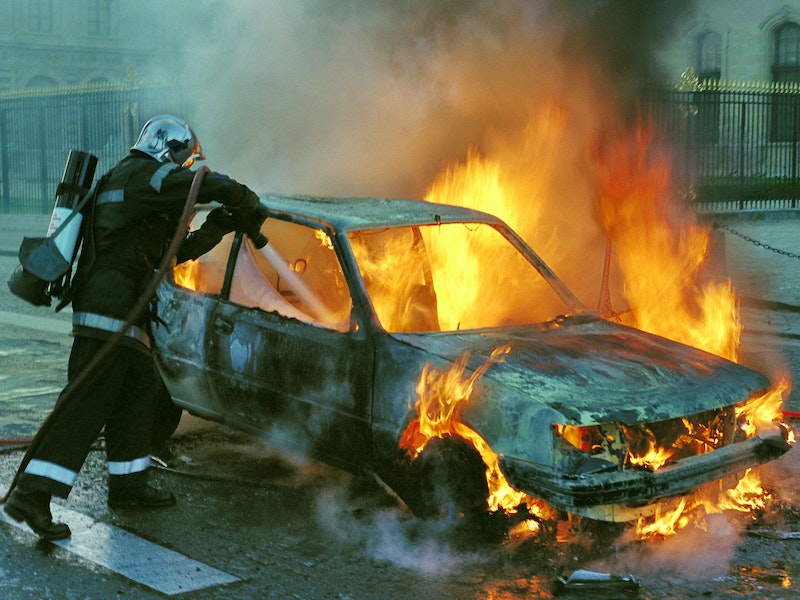
Car accidents are a scary and unpredictable part of life. Whether it’s a minor fender bender or a major collision, the damage to your car is often the first thing that comes to mind.
But what about the other costs that aren’t as obvious?
The truth is the real cost of a car accident goes far beyond the damage to your car. There are the medical bills for any injuries sustained, the cost of a rental car while yours is in the shop, and even lost wages from time taken off work.
And let’s not forget about the emotional toll a car accident can take. The fear, anxiety, and trauma can last long after the physical damage has been repaired.
This article will explore the real cost of a car accident and how you can get justice for your losses.
When you’re in an auto accident, it usually means filing a claim with your insurer. Depending on who is responsible for the incident and what type of policy they carry, several parties may be involved in sorting out the costs.
The total amount each driver pays depends upon their coverage plans, deductibles, and any other associated fees or fines issued by law enforcement agencies.
In addition, even if you are found not at fault for the crash—which is common when driving defensively—your insurance premiums may still increase due to how insurers perceive risk from most accidents or if the at-fault party didn’t have enough insurance coverage.
One of the most significant car accident costs is bodily injury, ranging from minor cuts and bruises to more catastrophic injuries.
Some of the most common personal injuries sustained in motor vehicle accidents include:
The impact of personal injuries from a car accident can be overwhelming and can take a toll on the victim and their family. If you’ve been injured in a car accident, it’s important to get medical attention right away.
The physical injuries of a car accident are the most visible, but the psychological impacts can last much longer. Pain and suffering are common consequences of a car accident, and they can significantly impact a victim’s life.
Pain and suffering can manifest in many forms, including physical pain, emotional distress, and psychological trauma. Physical pain can range from minor discomfort to chronic, debilitating pain that requires ongoing medical treatment.
Emotional distress can include anxiety, depression, and post-traumatic stress disorder (PTSD), significantly affecting a person’s quality of life. Psychological trauma can also be a significant component of pain and suffering, as car crashes can be traumatic events that leave lasting emotional scars.
Loss of earnings is a common consequence of a car accident, especially if the injuries sustained in the accident prevent the victim from working.
If you can’t work due to injuries from a car accident, you may lose wages, benefits, and other forms of income. This can strain you and your family, especially if you rely on your income to pay bills and expenses.
In addition to the immediate loss of earnings, there may also be long-term effects on your earning potential. If your injuries prevent you from working in your chosen profession, you may need to retrain for a new career or find a lower-paying job. This can result in a permanent reduction in your earning potential and can have significant financial consequences.
Car pay-off after a car accident refers to paying off any outstanding loans or debts on a damaged or totaled vehicle. If the car is deemed a total loss by the insurance company, meaning the cost of repairs exceeds the value of the car, the insurance company will offer a settlement amount to cover the value of the car at the time of the accident.
If you still owe money on a car loan or lease for the vehicle, the insurance company will send the settlement amount to the lender or leasing company first to pay off any outstanding debts. Any remaining funds from the settlement will then go to you.
In some cases, however, the settlement amount may not be enough to fully pay off the outstanding loan or lease, resulting in a situation where you still owe money even though the car is no longer drivable. This is known as being “upside down” on the loan, and it can be a difficult situation to navigate.
A car wreck can have serious financial, physical, and emotional implications that go far beyond the property damage to your car.
If you’ve been involved in a car accident, it’s important to know that you may be entitled to compensation for these losses. This compensation can help cover medical expenses, lost wages, and other expenses related to the accident.
To get compensated, you must file a claim with your or the at-fault party’s insurance company and be prepared to negotiate with the adjuster, who may try to offer a settlement lower than what you’re entitled to.
Working with an experienced personal injury lawyer can ensure you get the maximum compensation for your case and protect your rights. The good news is that you’re already in the right place.
Contact our team at DP Injury Attorneys for a free case review today.